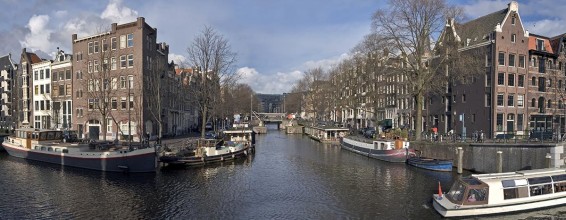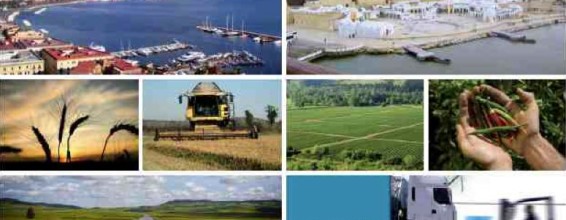Food safety procedures aim to reduce foodborne diseases which are an important cause of morbidity and mortality worldwide, mainly caused by harmfull bacteria. Even in industrialized countries, food contamination still creates an enormous social and economic strain on societies. For instance in the USA, where HACCP, systematic preventive approach to food safety was first developed, about 48 million people (1 in 6 Americans) still get sick every year, of which 128,000 are hospitalized, and 3,000 die each year from foodborne diseases, according to recent data from the Centers for Disease Control and Prevention. The Food Safety Modernization Act has been signed by law in 2011 by US government and is confirming the widely shared trend that satisfying food safety standards are preferably met by the food industry, in a context that see the dramatic expansion in the global scale and complexity of the food system, thus leading to a decline in local subsistence production systems by leaving aside small scale producers and food artisans who are not equiped to reach those standards .
However, such strong belief must not hide the numerous negative repercussions that uncontrasted food industrialization trend has on the local economies worldwide, in particular employment and social inclusion, on environment (soil erosion, biodiversity reduction, climate change, water pollution etc.) and even … on human health. Indeed besides the statistics on foodborne diseases, the WHO also presents other worrying evidences on food related diseases among which overweight and obesity represent one of the most significant symtom of a rapidly growing threat to the health of populations in an increasing number of countries, as a consequence of increased urbanization and industrialization and the disappearance of traditional lifestyles.
Therefore if expectation rises for a paradigm shift in both planning and policy formulation, in order to ensure food access, foster inclusion and innovation, improve environmental management, enhance rural-urban linkages and provide policy guidance at global and local level, such wide field of thought and discussion must include a focus on food safety issues. Indeed, we need to learn from past mistakes and avoid repeating them by reformulating rulemaking and guidance development process and setting up new prevention-oriented standards that are also matching sustainability requirements such as food waste eradication, food security and sovereignty, protection of environment, people health and quality of life.
Introduction

A growing number of local governments across the world are rebuilding their food systems through innovative public policy. Increased attention for urban food systems responds to the need to place food higher on the urban agenda. Urban food systems are an increasingly important driver for many other urban policies such as health and nutrition, education, occupation, tourism, transport, waste and water management, adaptation to climate change and social welfare. A paradigm shift in both planning and policy formulation is required in order to ensure access to food, foster inclusion and innovation, improve environmental management, enhance rural-urban linkages and provide policy guidance at both national and municipal level.
This 2days-workshop are focused on imaging an inclusive, innovative and sustainable urban food policies and on comparing experiences in planning and implementation of food strategies. Three working groups will focus on the following subjects that represent the pillars of Eating City Platform: Production, Consumption and Human Labour.
Three main questions to discuss concern: (Working Group)
- From farm to kitchen: how to build urban food infrastructures? Building Community Kitchen or Community Food Centre that integrate food activities with the local agri-food provisioning area, enforcing urban procurement of local food and identifying the policy and regulatory environment of market.
- Beyond the food pyramid towards food self-sufficiency? Searching for a new paradigm for a territorial food planning able to improve the local management of agri- food systems, both local and global and evaluate the local food provisioning area.
- Considering the flows: how to reduce food miles and increase food travellers ? Most potential visitors want to taste fresh local products, traditional dishes, or regional specialities (even when they came back at home), as well as the farm and the places where those products are grown or made and the linked landscapes.
An Eating City workshop about raising the sustainability of food provision in Hospitals and Care Homes.
Over the past years a counter movement has started towards increasing the share of sustainable food in the care sector. Regional sourcing, reducing food miles, is one of the subjects under attention. Other subjects include limiting food waste in the whole of the food chain, starting with production and ending with consumption and including re-using wastage where possible. At consumption level there is growing attention for the taste of the meals provided; serving more freshly prepared food is one of the ways this is being worked towards.
In this 2-days workshop the key factors for a successful increase of the sustainability level of meal provision in the care field are being exchanged, explored, and evaluated. In the afternoon of the first day the issues mentioned above will be the subject of 4 or 5 short presentations.
On the second day three working groups will focus on the following subjects, that represent the 3 main pillar of reflections of Eating City Platform : Production, Consumption and Human labor.
- In which ways can the production of meals for hospitals and care homes become fundamentally more sustainable?
- Which role do sustainable prepared meals – including the increased use of fresh and regionally sourced ingredients – at the level of consumption?
- What are the implications of a sustainable meal provision for the employability in this sector (does it require extra work force, special skills and knowledge, etc.).
The meeting will be concluded in the afternoon of the second day with an exchange and sharing of the outcomes of the working group discussions.

The conference has gathered people from different horizons, regions, countries, continents, to think about the many aspects of sustainable food systems. The participants have highlighted the necessity to create an international network involving as many countries as possible, and to share case studies in order to document feasible actions.
It has raised the question of unsustainable flows of food induced by urban sprawling. Therefore the project highlighted the fact that the current pattern of development of globalized food supply chains is 1 – disrupting food-based economies at local level everywhere in the world, 2 – concentrating financial resources in the hands of few players, 3 – generating environmental inefficiencies by increasing road transport and food waste and 4 – generalising the production of standardized and unhealthy food.
Introduction

It is not merely a quantitative aspect: let’s think about CO2 emissions; we have access to foods that originate thousands of miles away. The valorization of local production (the concept of zero km) certainly entails a reduction of greenhouse gas emissions and the promotion of the local economy. This, however, also leads to a reduction of the variety and, to some extent, the culture of food. An irreconcilable contradiction?
These are the questions that have been addressed during the three workshops :
- Agrifood supply chain, work and migration flow.
- Citizens and farmers: Short supply chain & farmers market-
- Sustainable fishing and nutrition.
and also during the public conference, with special attention to the Mediterranean area.
Partners of the event
Eating City is a multi-year program of activities established by the Consortium Risteco – Terre Citoyenne, co-funded by the CLM foundation for Human Progress in Paris, and locally, by Ecopolis Conference 2011.

A special thanks for their support to:










